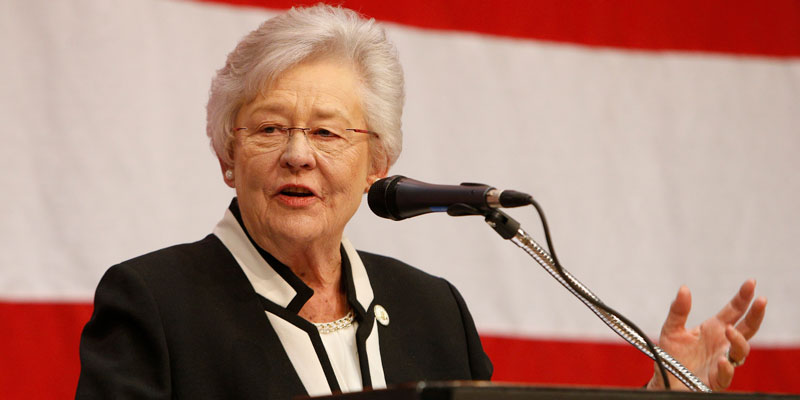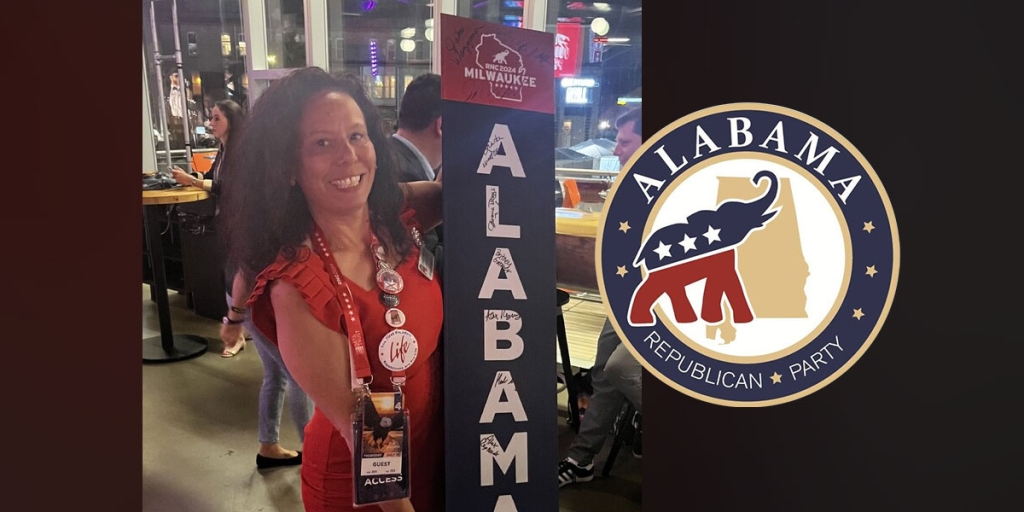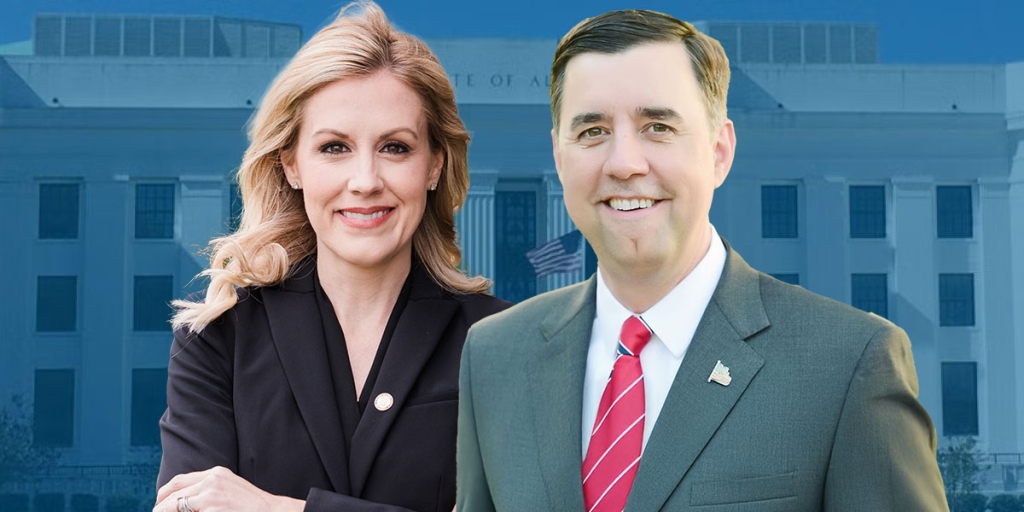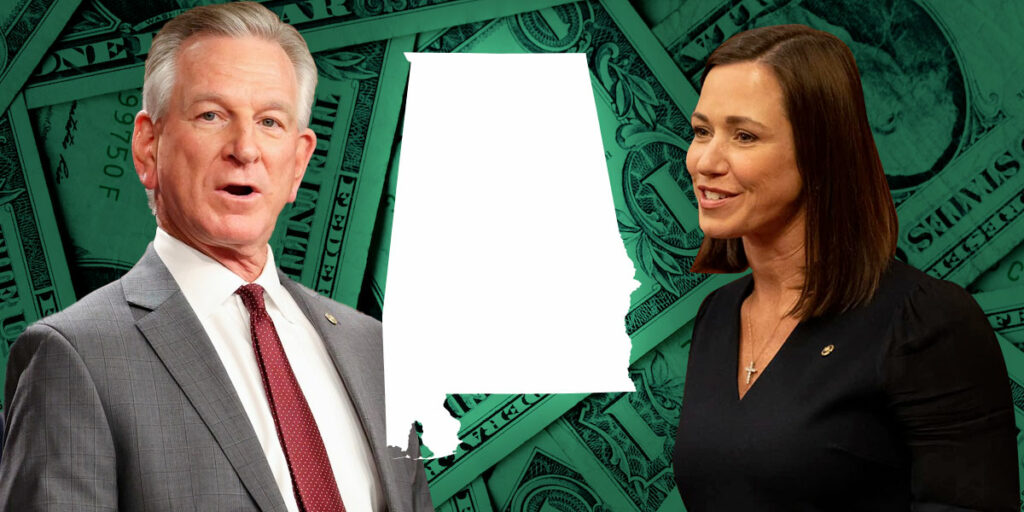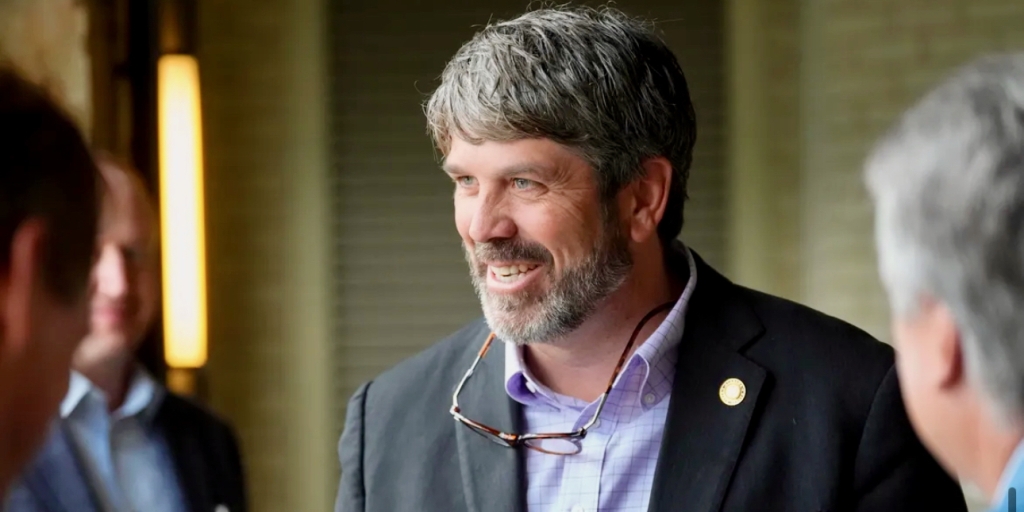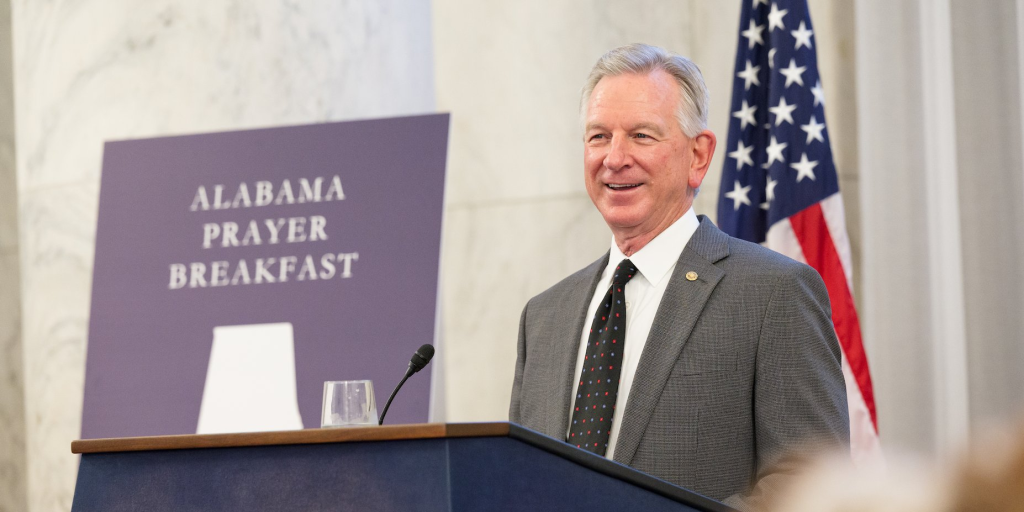Governor Kay Ivey recently responded to a gubernatorial candidate questionnaire from the Alabama Policy Institute and Yellowhammer News. Her responses are below:
POLITICAL PHILOSOPHY AND PRINCIPLES
Question: What is your political philosophy and, if elected, how would it shape the way you govern?
Ivey: Growing up on the family farm in Wilcox County, I learned to put in a hard day’s work, to live within our means, and the importance of faith, family and community. These are the same values I have carried with me throughout my life. As a public servant, I have always fought for conservative principles: promoting economic growth, protecting taxpayer dollars, fighting for the unborn, preserving our Second Amendment rights and restoring the people’s trust in government.
How have you demonstrated your commitment to your political philosophy?
When I became Governor, I told you we’d clean up the mess in Montgomery and bring back conservative values—and we have. Immediately upon assuming the role of Governor, I turned over nearly half the cabinet and replaced them with people of integrity. With executive orders, I’ve streamlined state government, shut down unnecessary task forces, and banned lobbyists from appointments by the executive branch.
From my experience as Lieutenant Governor, I understood and prioritized open communications between the Executive and Legislative Branch to make sure we were effectively working together for the people of Alabama – and we did. In only one year, I signed hundreds of bills and resolutions – nearly one for every day I’ve been in office – and now Alabama is working again. But, I’m not done yet.
What is the most important role of the governor?
First and foremost, a Governor should have a vision and plan to promote conservative values, incentivize economic prosperity, improve education, and maintain the trust of the people. As Governor, I have made it my job to make sure you have a job with a good paycheck. Under my leadership, Alabama has created more than 13,000 new jobs, achieved the lowest unemployment rate in Alabama history, and most recently, I signed the largest middle class tax cut in a decade.
What is the most challenging social issue facing families in Alabama? Does government have a role in helping to solve that problem, and if so, what would you propose?
As a pro-life conservative, I believe every life is precious, starting at conception. Throughout my time as a public servant, I have championed policies such as protecting the unborn and preventing the use of taxpayer dollars from paying for abortions.
Alabama has four abortion clinics operating across the state, and Planned Parenthood has announced plans to build a new clinic in downtown Birmingham. How do you feel about these clinics and what would you do as governor about any taxpayer funds they receive?
I have and will always advocate for those who are unable to advocate for themselves. I’m pro-life because God teaches us to love life, and he created us and wants us to love one another, and I will always fight to protect the unborn.
As Governor, I supported President Trump’s action to rollback Obama-era regulations and stop the use of state Medicaid dollars from paying abortion providers. Prohibiting the use of tax dollars for abortions or abortion-related services is just one small step towards saving the unborn.
I am honored to have been recognized for my pro-life record, receiving endorsements for Governor from Alabama Citizens for Life and Susan B. Anthony List, two leading pro-life groups.
EDUCATION
PUBLIC EDUCATION
Alabama is ranked number forty-seven on U.S. News and World Report’s list of Best States for Education, and ranked number 1 in Pre-Kindergarten quality. As far as public education reforms, there have been many suggestions for improvement including increased investment in STEM education, distance learning, and reforming teacher tenure. What reforms would you propose or support to improve public education and prepare Alabama’s children for school success and lifelong learning?
I have an experience in my life that makes me unique among a lot of Governors—I began my career as a teacher. Being a teacher shows you what a school can do, and what an adult in the life of a child can help them achieve.
Alabama needs a comprehensive approach that improves education from Pre-K to the workforce, that’s why I launched “Strong Start, Strong Finish.” The “Strong Start, Strong Finish” education initiative focuses on three stages of education: 1) early childhood education, 2) computer science in middle school and high school, and 3) workforce preparedness. I instituted Strong Start, Strong Finish because we must prepare our people for the jobs of today and for the jobs of tomorrow. By 2020, 62 percent of all jobs available in Alabama will require some form of postsecondary education. However, today, only 37 percent of our workforce has achieved such an education. We must ensure that our students graduate high school and then earn a postsecondary certificate or degree.
I am also proud of the education budget that I signed into law. We added another $216 million in education funding, for the largest investment in education in a decade, and this money goes straight into the classrooms.
Education is the cornerstone of a better life, and I am committed to doing everything I can to make sure Alabama children have the resources they need to complete school, be prepared for the workplace and succeed.
ALABAMA STATE BOARD OF EDUCATION
Dr. Eric Mackey was recently named Alabama’s next State Superintendent of Education. The governor serves as a voting member of the Alabama State Board of Education. What vision for Alabama do you share with the new superintendent and where do your philosophies differ? How will you prioritize Alabama’s school children in your role on the Board?
Choosing the next State Superintendent is one the most important decisions entrusted to the Board. Before we began the process, I laid out a thorough and deliberate process to ensure we chose someone with a forward thinking vision that would improve the quality of education for all Alabama students.
Ultimately, I voted for Dr. Mackey because of our shared vision and commitment to ensuring children have a strong start to their educational journey and a strong finish so they can succeed when they enter the workforce. I also appreciate Dr. Mackey’s plans to improve assessments, the quality and quantity of our teachers, and to reduce administrative overhead. Dr. Mackey also demonstrated an important and strong commitment to continue and complete the Montgomery Public School intervention.
As president of the Board, I am focused on setting clear goals to improve learning and adopting strategy for educators to implement. I believe the Board must also see that Dr. Mackey is fully empowered to focus on students, unhindered from personal or political agendas.
SCHOOL SAFETY
The recent school shooting in Parkland, Florida reignited the discussion about school safety. President Trump has suggested arming teachers while others have argued for increased use of school resource officers and funding for mental health programs. As governor, how would you ensure the safety of Alabama’s children in public schools?
Earlier this year, I unveiled the “Smart on Safety Initiative”, a four-pronged plan to ensure the safety of our children at school. It’s an unfortunate reality but we must be prepared to prevent and respond to violence on our school grounds.
Details on the Smart on Safety Initiatives:
Secure Schools: While each school is different, the state will support local educators and administrators as they meet their own safety needs. As part of this plan, I signed a bill that allows schools to access funds from the Education Trust Fund Rolling Reserve Acts for the improvement and enhancement of school safety.
We Know Our Schools: A key part of the plan includes prevention. Schools are encouraged to identify at-risk students through student engagement and intervene before they harm themselves or others.
Emergency Operations Plan (EOPs): If a tragedy does occur, school personnel need to be empowered to act before first responders arrive. Schools should work with first responders and law enforcement on an ongoing basis to develop and maintain a current coordinated response to emergencies. Teachers and students will also receive regular trainings.
SAFE Council: An issue this critical does not leave room for error, which is why I established the SAFE Council. Composed of the Secretary of the Alabama Law Enforcement Agency, the Secretary of the Office of Information Technology, the Alabama State Superintendent of Education and the Commissioner of the Alabama Department of Mental Health, the SAFE Council carefully and thoroughly developed a report focused on the improvement of physical security, threat assessments and mental health and coordinated training. Some of the council’s recommendations will be immediately implemented, and I will be working with the State Legislature on the items that require further action and consideration.
SCHOOL CHOICE
In 2015, Alabama became the 43rd state to approve legislation to authorize charter schools. Many states now allow parents to transfer their child from a failing public school to a non-failing public school, to utilize education savings accounts or school vouchers, or to send students to alternative schools using tax-credit scholarships, allowing parents greater control in their child’s educational endeavors. How should school choice fit into Alabama’s education system?
As president of the Board of Education, an intimate knowledge of the education system is critical to our children’s success and ultimately the success of this great state. As a former teacher, I appreciate the benefits of school choice. School choice provides healthy competition, and competition can effectively raise student performance, teacher attendance, and financial management. As a conservative leader, I will always support and empower local administrators.
FISCAL RESPONSIBILITY
TAX CODE
In Alabama, the bottom 20% of earners pay 10% of their income in state and local taxes while the top 1% only pays 3.8% of their income in the same taxes. If elected, what would be the future of the state income tax and do you see this disparity as a problem?
This year, I was proud to work together with the state legislature to pass the largest middle class tax cut in a decade. Under the new law, we increased the threshold for claiming the maximum exemption for state income taxes.
I understand that every dollar spent by the government belongs to the people. And with the economy booming, I am pleased that we were able to give back to Alabamians some of their hard earned money.
STATE AND LOCAL TAXES
According to the Institute for Taxation and Economic Policy, Alabama boasts the 12th most regressive state and local tax system in the nation. One contributor to this ranking is our combined 9% grocery tax (only four states tax groceries more than Alabama). In 2017, Governor Bentley proposed decreasing the grocery tax by 4%. If you are elected, would you suggest changes to the grocery tax?
During my first year in office, I focused on giving Alabamians back some of their hard earned money with the largest middle class tax cut in a decade. This is a first step, but we are certainly not finished. With support from the people of Alabama, I would dedicate the next four years to continuing the good work we have begun.
Tax reform requires a comprehensive approach. As families know, financial planning requires an examination of how much money is being earned and how much money is being spent. Before we can determine what taxes should be changed or eliminated, we must conduct a thorough review of government spending to identify and eliminate unnecessary spending.
Promoting economic growth is another important step to reducing the tax burden on families. As Governor, I have made it my job to make sure everybody has a job with a good paycheck.
In less than a year, we steadied the ship, achieved record low unemployment, approved record funding for education and still managed to give Alabamians the largest middle class tax cut in a decade. Imagine the progress we can make if given four years to implement our agenda.
INFRASTRUCTURE INVESTMENT
US News ranks Alabama’s roads and bridges as the 16th and 21st best in the country, respectively. Even so, every neighbor of ours—except Mississippi—has roads and bridges that rank in the top 10. Alabama also ranks 45th in terms of broadband access. If elected, what would you prioritize as the most important infrastructure investment projects, and what innovative options would you propose to fund such projects?
Infrastructure is a critical component to job creation efforts. If we want to be competitive in the 21st Century economy, we must invest in our roads, bridges and broadband Internet.
However, current infrastructure funding in Alabama provides for only two of three important aspects: 1) We are able to provide for the general maintenance of roads and bridges; and 2) We periodically fund priority projects to alleviate some of the state’s most congested roadways. The third aspect which we are unable to fund under our current structure is that of 3) priority projects which continue to be on our state’s “wish list.” This wish list is typically driven by the recommendations of local officials as they determine their greatest needs.
Shortly after being sworn in as Governor, I was chosen as one of eight governors to work with President Trump on how to improve our infrastructure. As we have worked with President Trump and the Federal Highway Administration, we have begun to implement alternative methods to address the expansion of infrastructure. For example, we have applied the utilization of public-private partnerships (P3s). The greatest example of this is the I-10 Mobile River Bridge. This project is one of the most significant infrastructure projects in the United States, and we will take a business-minded approach by leveraging the private sector for a more efficient and cost-effective outcome to the state and its residents.
Infrastructure is not just limited to our roads and bridges. Our ability to continue to attract world-class companies and improve access to quality education and health care is dependent on widespread access to high speed Internet. I prioritized broadband access by supporting and signing “The Broadband Accessibility Act” into law during my first full legislative session as Governor. This law is an important step to moving Alabama forward by ensuring our citizens have the tools and resources needed to succeed in this modern economy. But I’m not done yet.
I plan to continue to work with existing Internet providers, education leaders, healthcare providers and others to identify even more ways to expand our broadband capabilities so that every citizen who needs access will have it available.
STATE-RUN LOTTERY
Most states resort to installing a state-run lottery to increase revenue and pay for government projects. Do you support a lottery to solve the state’s fiscal woes? Why or why not?
In Alabama, a state lottery would require a Constitutional amendment, which requires the state legislature to pass a bill which then goes directly to the people for a vote. If the state legislature passed a bill, I would support allowing the people of Alabama to vote.
THE RIGHT TO WORK
JOB CREATION
The Census Bureau suggests that Georgia, Florida, and Tennessee are creating more jobs than Alabama. As governor, how would you foster job creation that rivals our neighbors to the north, east, and south?
Under my leadership, Alabama is attracting world class companies. In only a year, more than $6 billion have been invested, 13,000 jobs have been created and we have achieved record low unemployment. But, we’re not done yet. If we want to continue to recruit job creators, we need to improve education, modernize our infrastructure and strengthen our workforce development.
ROLE OF LABOR
Alabama is a right-to-work state. In your opinion, what is the proper role of organized labor and should Alabama remain a right-to-work state?
Yes, workers should be entitled to work without being forced to join a labor union. This affords workers more freedom, including financial burdens. Being a right to work state is not only good for workers, it’s good for the overall economy as it increases competition and promotes more economic growth. I believe a free marketplace is most effective.
OCCUPATIONAL LICENSING IN ALABAMA
The state of Alabama licenses 151 different occupations and over 20% of Alabama workers need a license to work. If elected, how would address these regulations—regulations that both the Obama and Trump administrations have regarded as problematic?
I am fully committed to reducing the size and scope of state government. I have led efforts to streamline government operations and continue to make that a priority. Government should exist to protect citizens, help the most vulnerable, and create an optimal environment for job creation. Our economic development successes over the last year prove that companies see Alabama as a state with a favorable economic and regulatory climate. However, government can always operate more efficiently and effectively for the people.
I will continue to push for more friendly policies for businesses and individuals and fully commit to President Trump’s policies for a less burdensome government. Government was created for the people and by the people. It should not be an “us vs. them” mentality. The dollars that support state government do not belong to the bureaucrat – but to the residents of this state. We must always remember to spend them with meticulous and thoughtful results in mind.
CRIMINAL JUSTICE
OPIOID EPIDEMIC
According to the CDC, Alabama is the state highest-prescribed with opioids, with more prescriptions than people. Opioids are the main driver of overdose deaths and, in 2016, 756 Alabamians died from drug overdoses. As governor, how would you tackle Alabama’s share of this national crisis?
The opioid crisis is an issue that touches all our communities. This isn’t a political issue, it’s destroying lives regardless of political parties, and we must do everything in our power to stop it.
That is why I signed an executive order to establish the Opioid Overdose and Addiction Council, which is tasked with addressing the urgent epidemic that is ravaging our families.
CRIME PREVENTION
Alabama has the third highest murder rate in the country. As governor, how would you address crime and what policies, specifically, would you propose?
Any efforts to target crime reduction must begin early in an individual’s life with commitment to create a different culture, environment and opportunity for everyone. For Alabamians to have career opportunities, they must be prepared when the right job comes along. My education initiative, Strong Start, Strong Finish does just that. Under Strong Start, Strong Finish we will coordinate our efforts and bring all stakeholders to the table in order to improve education all the way from Pre-K to the workforce effective education requires a strong foundation in a child’s early years. In 2017, under the leadership of Secretary Jeana Ross, Alabama’s First Class Pre-K program increased the number of classrooms to 938 statewide. Research shows us that students who participate in Alabama’s First Class Pre-K program are more likely than other students to be proficient in reading and math at every grade level.
For the 11th year in a row, our First-Class Pre-K program was recognized for being the highest-quality Pre-K in the nation. In fact, Harvard University is currently developing a full-length documentary on Alabama’s Pre-K program to share across the country with those interested in following our lead. Our First-Class Pre-K is certainly a bright spot for Alabama.
I’m proud to have quickly become known as a governor focused on education. Over the past nine months, I have devoted a great deal of my time to my role as president of the State Board of Education. In less than two years, Alabama has had four different K-12 superintendents. That is nothing to be proud of. The members of the State Board of Education must ensure continuity to see progress. Board members must set goals and adopt strategies to achieve student learning at high standards. Our central focus must be on our students, not on personal agendas or political maneuvering.
PRISON REFORMS
Alabama has received national attention for the state of its prisons and a federal judge recently called inmate care “horrendously inadequate”. How would you address this issue, and do you support the use of private prisons?
Perhaps our state’s biggest challenge is found in our prison system. For far too long we have run our state’s prison system in a way that risks a takeover by the federal courts. Now, one federal court has found that our prisons are overcrowded and understaffed, due at least in part to facilities that are worn and old. Correctional professionals work diligently to provide security, medical, mental health and rehabilitative services in a challenging environment. They deserve our attention and support. We must also work diligently to provide appropriate care to those placed in the custody of the Department of Corrections.
Immediately after taking office, I instructed Commissioner Jeff Dunn and his staff to work closely with my staff to develop a viable plan to address correctional staffing and make capital investments in our infrastructure.
We have commissioned comprehensive reviews to determine the compensation levels necessary to recruit and retain corrections staff. And I have instructed the Commissioner to hire a project management team to help us develop a master plan so we will be able to make smart, cost-effective decisions when addressing our outdated prison infrastructure.
We will no longer guess about possible fixes. Instead, I will present to the people a workable solution to this generational problem. I am committed to meeting this challenge head-on. Together, with the support of the legislature, we will solve this problem for generations to come. This is an Alabama problem that must have an Alabama solution; now is the time to act.
CIVIL ASSET FORFEITURE
Some states are eliminating provisions that allow police to seize property without securing a criminal conviction. Do you support the use of civil asset forfeiture by law enforcement and the provision that allows agencies to keep the proceeds of seized property? Why or why not?
I support reform to protect personal property and due process rights of all Alabamians. This year, the state legislature took an important step by starting the conversation. It is my hope that we can build upon the foundation that was laid and implement real reform that balances individuals’ protection of personal property and the flexibility necessary for law enforcement to hold criminals accountable.




